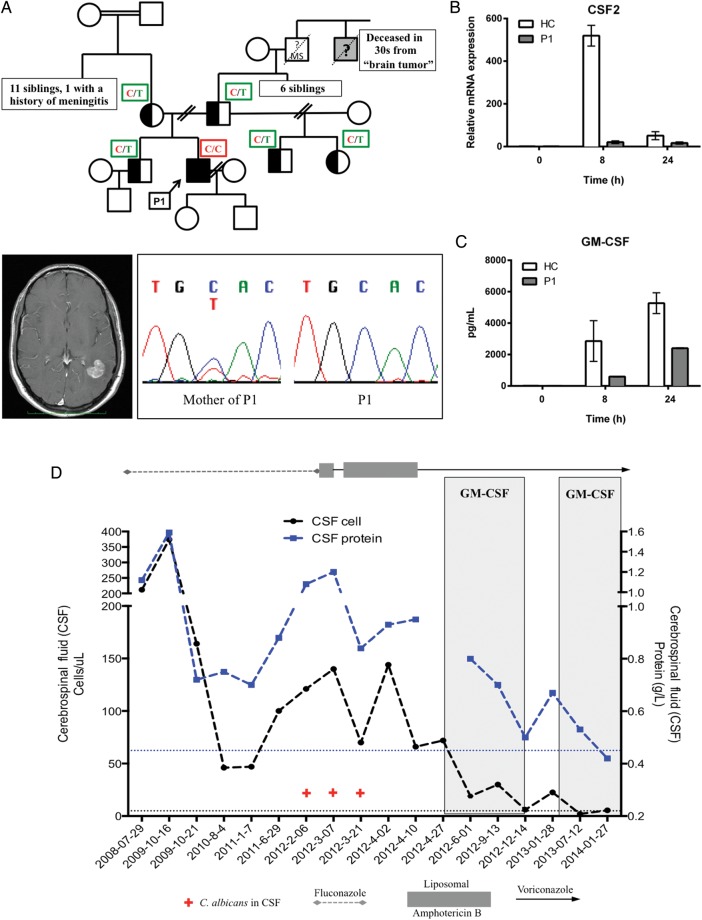Figure 1.
CARD9 deficiency, spontaneous CNS candidiasis (sCNSc), and impaired granulocyte-macrophage colony-stimulating factor (GM-CSF) responses. A, Patient (P1) presented with cerebral mass. Excision yielded an abscess with Candida albicans. Sequencing revealed a homozygous c.T271C mutation in CARD9 (chromatogram) that segregated with sCNSc as a recessive trait (pedigree); a great uncle had died of a “brain tumor” when in his 30s but could not be sequenced. B, Zymosan-stimulated peripheral blood mononuclear cells showed impaired GM-CSF gene expression by reverse-transcription–quantitative polymerase chain reaction relative to GAPDH (and GUSB, not shown) with (C) decreased GM-CSF production by enzyme-linked immunosorbent assay. D, Serial CSF analyses revealed ongoing inflammation (pleocytosis and elevated protein; reference range in dotted lines) and recurrent isolation of C. albicans (+), despite antifungals. Adjunctive GM-CSF (shaded) resulted in resolution of symptoms and normalization of CSF parameters. Results are mean of 2–3 experiments (± standard error). Abbreviations: MS, multiple sclerosis; HC, healthy control.

